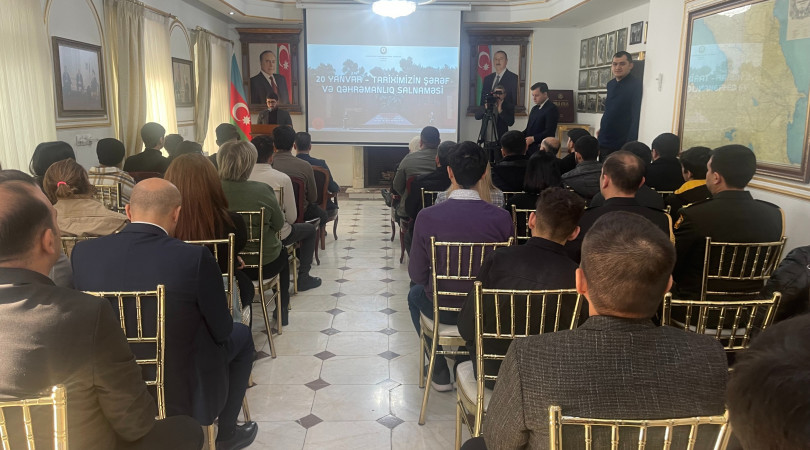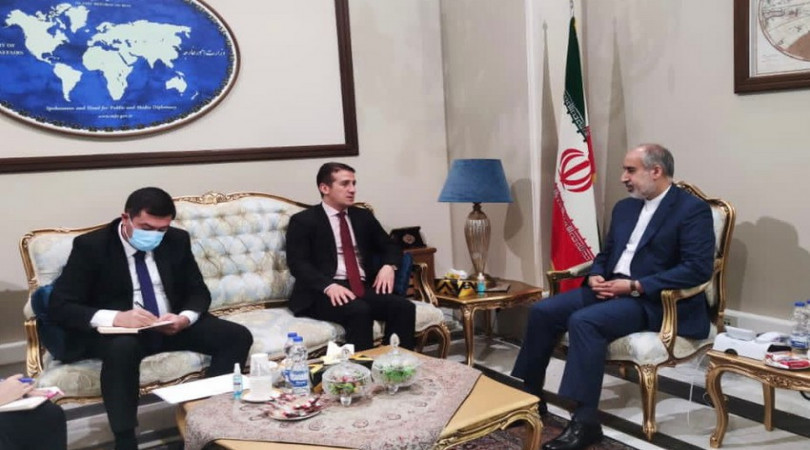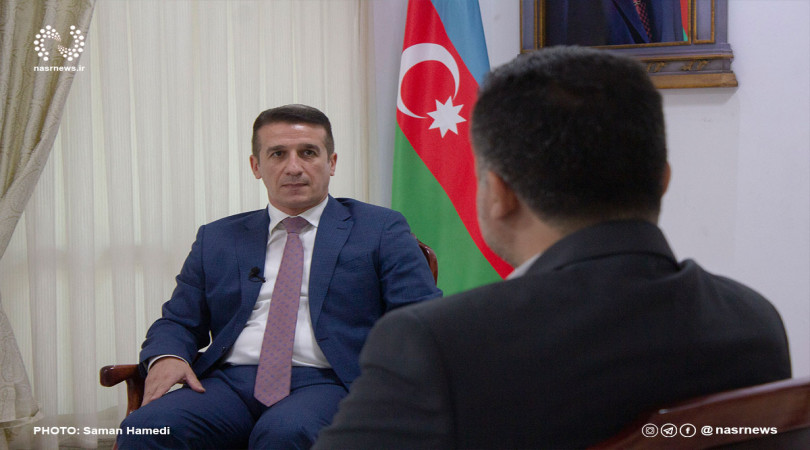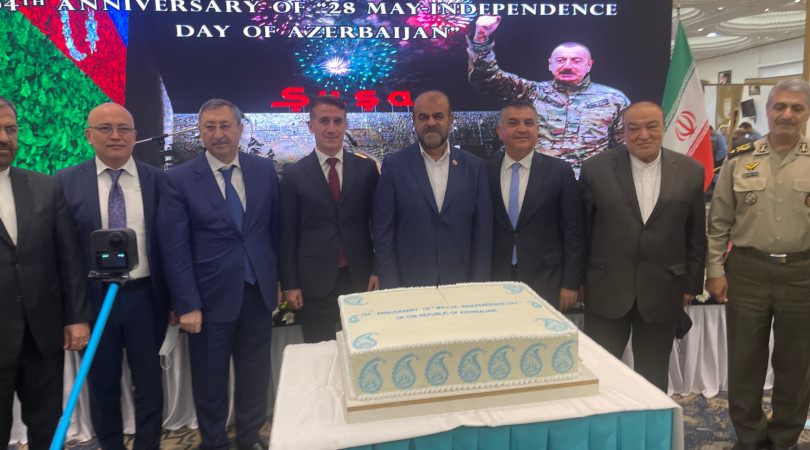Declaration of the V Baku International Humanitarian Forum
Declaration of the V Baku International Humanitarian Forum
We, politicians, scholars and representatives of international organizations, culture, civil society and the mass media, who took part in the V Baku International Humanitarian Forum held in Baku, capital of the Republic of Azerbaijan, on 29 to 30 September 2016,
- guided by the United Nations Millennium Declaration and taking into account the Resolution of the UN General Assembly of 25 September 2015 on sustainable development until 2030 and the Paris Agreement on climate change of 12 December 2015;
- noting that progress has been made in achieving the goals set out in the Millennium Declaration;
- highly commending the substantial shifts achieved in recent years in the resolution of many humanitarian problems, in particular in access to education, health care and information and communication technology, in overcoming the “digital divide” and shaping a knowledge-based society;
- declaring our commitment to the new broad, ambitious, universal 2030 Agenda for Sustainable Development and noting the importance of maintaining and increasing human capital;
- acknowledging the fundamental significance of human dignity and the principles of the supremacy of the law, justice, equality and respect for racial, ethnic and cultural diversity and considering the increase in human capital the main prerequisite for the achievement of the millennium goals;
- calling on everyone to mobilize efforts to achieve the 17 sustainable development goals and to persevere in hitting the 169 targets set for humanity;
- considering that there can be no sustainable development without peace and no peace without sustainable development, and calling all countries and peoples to a prompt and fair resolution of the current conflicts in the world;
- agreeing with the need for balance in achieving the economic, social, ecological and other components of sustainable development;
- realizing that for many countries immense problems requiring the creation of different short-term and long-term programmes still stand on the path of sustainable development;
- vigorously condemning escalating conflicts, militant extremism, terrorism and the related humanitarian crises and the forced displacement of people;
- noting that despite all attempts to achieve effective intercultural, interfaith and inter-civilizational dialogue, manifestations of xenophobia, racism, intolerance and ignorance of the achievements and potential of the policy of multiculturalism remain potent around the world;
- expressing our commitment to the policy of gender equality and ensuring the rights of people in vulnerable situations;
- highlighting the fact that the rights of ecological civilization can be affirmed only by taking into account the fundamental principles of humanitarian ethics and with the full mobilization of intellectual, cultural and social potential;
- taking into account the huge role of the mass media and information technology in developing humanitarian cooperation;
- wishing to mobilize efforts for the reliable preservation of our planet and its natural resources and for ensuring development and the use of technology, taking into consideration climate factors and the need to preserve biodiversity;
- recalling that in conditions of globalization the search by the scientific community for appropriate responses to the challenges of the 21st century, the convergence of sciences, innovative technology and biotechnology throw up a wide spectrum of philosophical and ethical problems;
- having examined in the course of discussions and broad exchanges of views such aspects of global humanitarian problems as:
• different models of multiculturalism: from theory to humanitarian practice;
• the importance of preserving the human capital in conditions of mass migration as a basis for sustainable development;
• transforming of journalism for the information age and its role in ensuring inter-civilizational dialogue;
• sustainable development and ecological civilization;
• molecular biology, biophysics, biotechnology and issues of personnel training in modern medicine: innovative and ethical problems;
• converging technologies and predictions for the future: the main challenges of the 21st century;
- we state that the work of the V Baku International Humanitarian Forum was extremely fruitful and, undoubtedly, made a worthy contribution to the expansion and further development of international humanitarian cooperation;
- we think that investment in human capital alone is the most important prerequisite in finding effective responses to contemporary challenges, just as it contributes to the improvement of managerial, production, scientific and information and communication technology directed at improving quality of life;
- we note that the Baku International Multiculturalism Centre, founded on the initiative of the Republic of Azerbaijan, makes an important contribution to the development of the theory and practice of multiculturalism;
- we attest that significant success has been achieved in Azerbaijan in maintaining and increasing human capital overall, and also amongst such vulnerable groups of the population as refugees and forced migrants, for the effective use of this factor in achieving the goals of sustainable development;
- we acknowledge that the key humanitarian components of sustainable development are the development of human capital through the integration of cutting edge knowledge and skills, including interdisciplinary ones, in a programme of continuing education and also the expansion of cooperation in this field;
- we note the ever-growing role of information technology and the mass media in achieving the goals of organizing effective inter-civilizational, intercultural and interfaith dialogue;
- we pay special attention to the need to shape ideas of ecological civilization and encourage different movements in support of the introduction of rational models of consumption and production, an attitude of care towards natural resources and awareness of the need to take action on climate change;
- we understand the importance of a comprehensive exchange of views in interdisciplinary areas among different representatives of the scientific community, including among scholars from the natural and humanitarian sciences, and highly appreciate their efforts in the sphere of the convergence of modern and traditional technology to ensure appropriate responses to the challenges of the 21st century;
- we call on all international and national structures specializing in humanitarian cooperation to hold regular forums, conferences and round tables aimed at fostering an atmosphere of tolerance and mutual respect and at meeting contemporary global and local challenges;
- we note the need for this kind of forum to be held once in two years and express our deep gratitude to the President and government of the Republic of Azerbaijan, the Heydar Aliyev Foundation and all the organizers of the V Baku International Humanitarian Forum for creating the conditions for a productive exchange of opinions and elaboration of a common vision of the problem;
- we consider necessary the adoption of this declaration and its use in reinforcing cooperation in the humanitarian sphere.
















